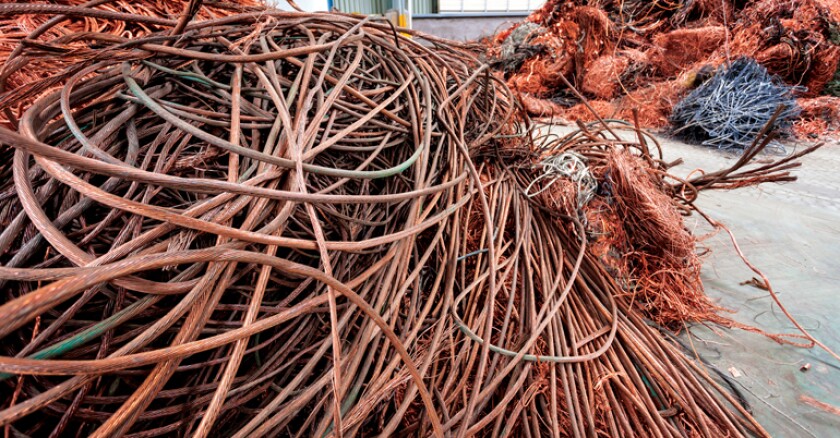South Africa has been facing a costly scourge of cable theft, with a possible ban on scrap metal sales on the cards. Last month, the Department of Trade, Industry and Competition (DTIC) gazetted its draft policy proposals to regulate and restrict the trade of scrap metal in South Africa for public comment.
Calls for a ban have been growing against the backdrop of infrastructure damage due to cable theft. However, there are concerns that implementing a ban could lead to tremendous job losses in the scrap metal industry.
Taking decisive action against cable theft is a gambit between saving jobs in the scrap metal industry and ensuring businesses are able to transport goods efficiently. That’s according to Pieter du Plessis, Chief Operating Officer at XA Global Trade Advisors.
“We’ve got a really big challenge,” he said, adding that “we’ve got organised crime syndicates that actually steal us blind and it disables our infrastructure from rail to electricity. It’s a significant compromise to the economy and to companies that rely on this infrastructure.”
“The proposed measures are intended to have a decisive impact [but] the concern remains that the majority of businesses in the sector are legitimate businesses and if their trade is severely impacted, it can have a significant impact on jobs,” he said.
SMread: Afghanistan assets must be returned to help them recover
Six-month ban to curb cable theft
In his State of the Nation Address (SONA), President Cyril Ramaphosa promised to take “decisive” steps to address the issue.
He said: “The damage caused by the theft of scrap metal and cable on our infrastructure like electricity, trains and other vital services is enormous. We will take decisive steps this year both through improved law enforcement and by considering further measures to address the sale or export of such scrap metal”.
As a direct outcome of the promise, the department proposed a host of policy measures to end cable theft, including a six-month ban on the exports of scrap metal from South Africa.
However, as Du Plessis explained, existing loopholes mean the ban may not have the desired effect.
“I cannot really imagine that crime syndicates would follow the legitimate route to export products. You could melt down some copper and export it without any constraints; that’s also intended to be on the radar but we’re going to put [a ban] on industry and on the revenue of certain companies that employ a lot of people,” he said.
He said existing companies, which operate legally and follow due processes, may be set back while illegal syndicates could continue business as usual.
SMread: What is the Unlawful Entry on Premises Bill?
Is there an alternative?
Du Plessis stressed that the costly impact of cable theft was hampering the economy. According to the DTIC itself, copper theft from the country’s rail network and electricity grids carried an annual economic cost of more than R45 billion in 2020/2021.
He explained that a blanket ban on all exports of scrap metal would be unwise due to the negative side effects. Instead, he suggested, the government should boost intelligence capabilities and take proactive measures to curb cable theft.
“You need a significant crime intelligence capacity to do this. You need dedicated teams – it has in the past been a close cooperation between the industry, SARS and the police in the ports, but to sustain that you need manpower. You need intelligence to be gathered for an extended period to really be effective,” said Du Plessis.
He said: “There needs to be a significant focus on the policing side and on the necessary technology to be able to properly assess cargo.”
Du Plessis also suggested that a ban could be instituted only at certain points of exit, but cautioned that even such a move may not be as effective due to potential smuggling.
